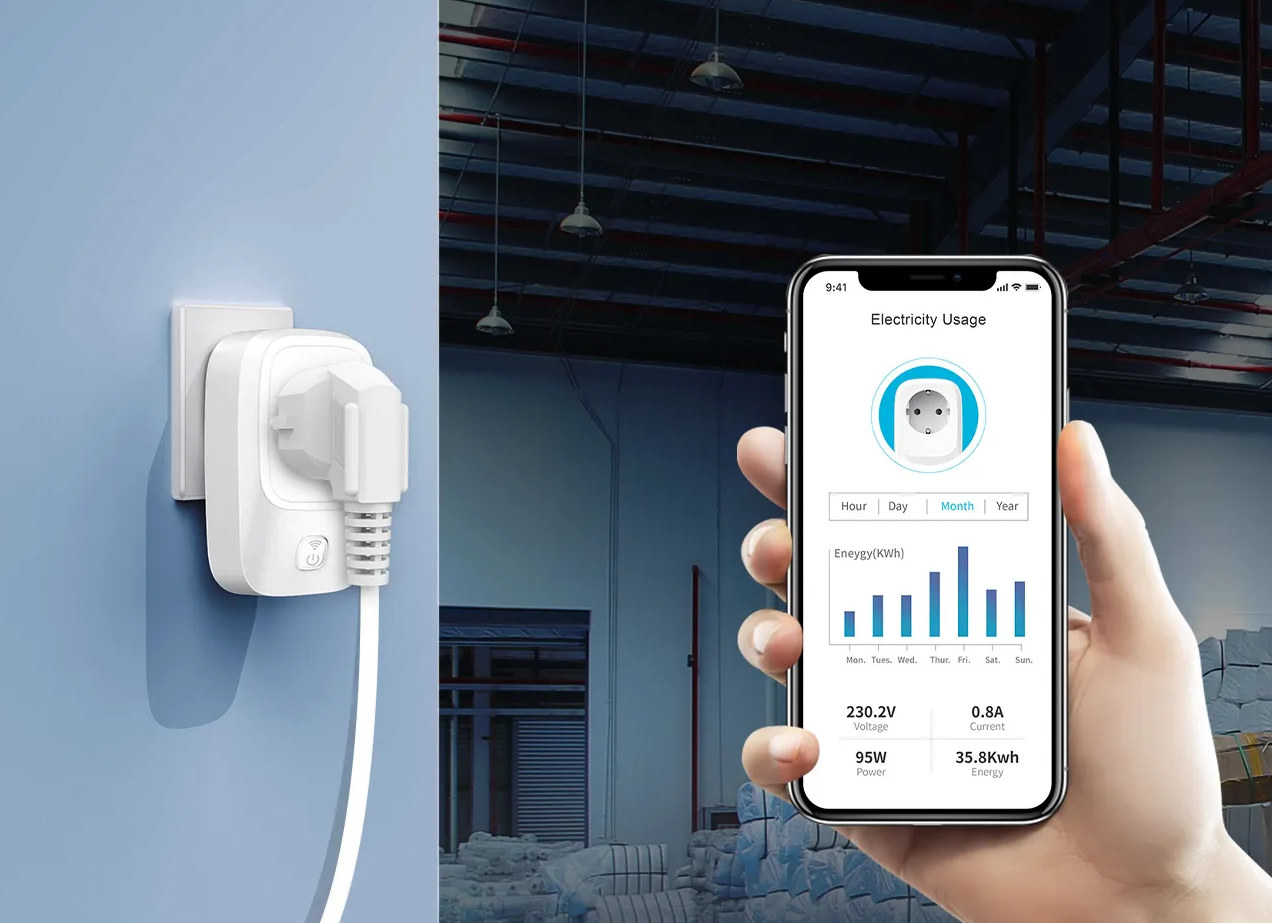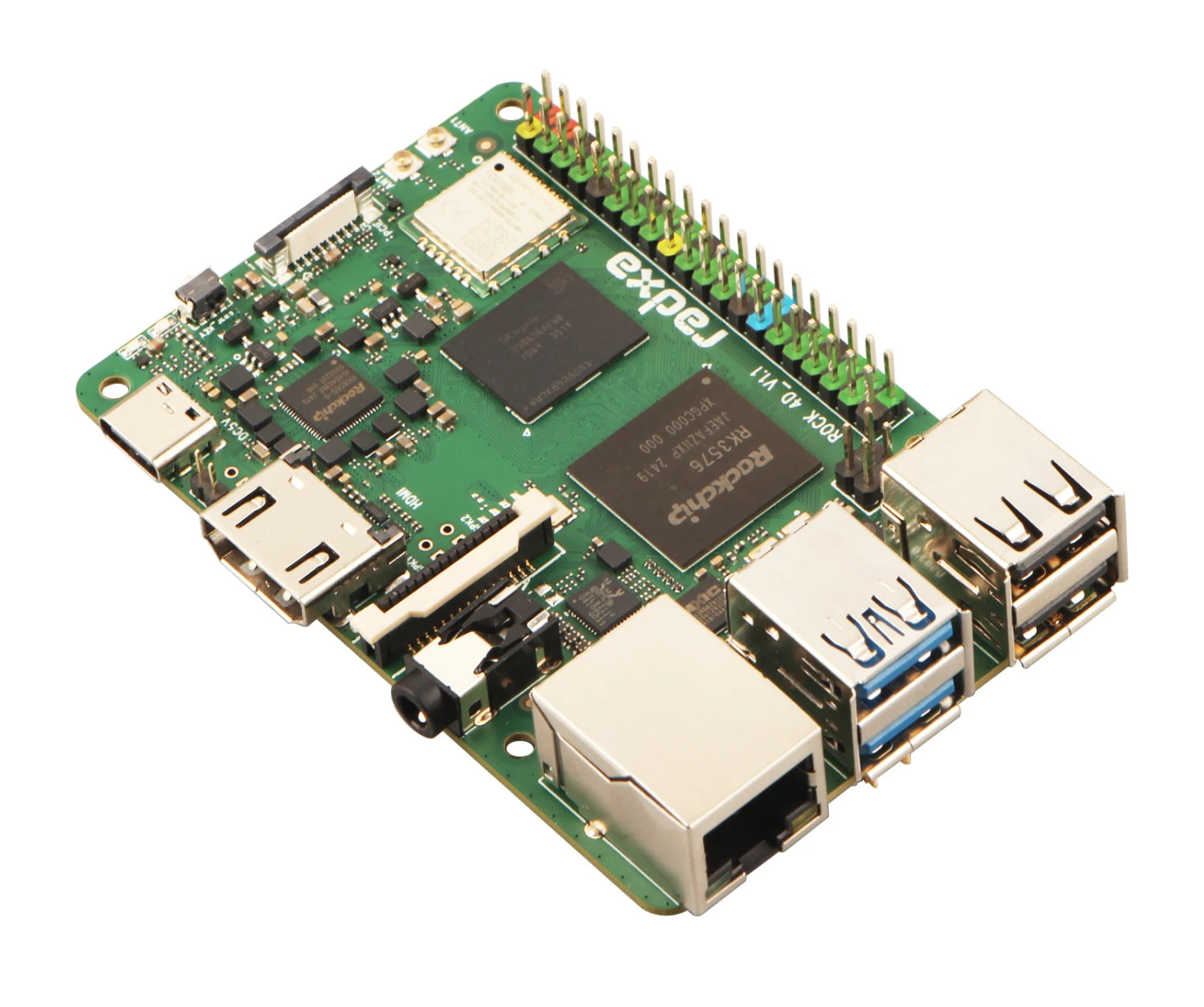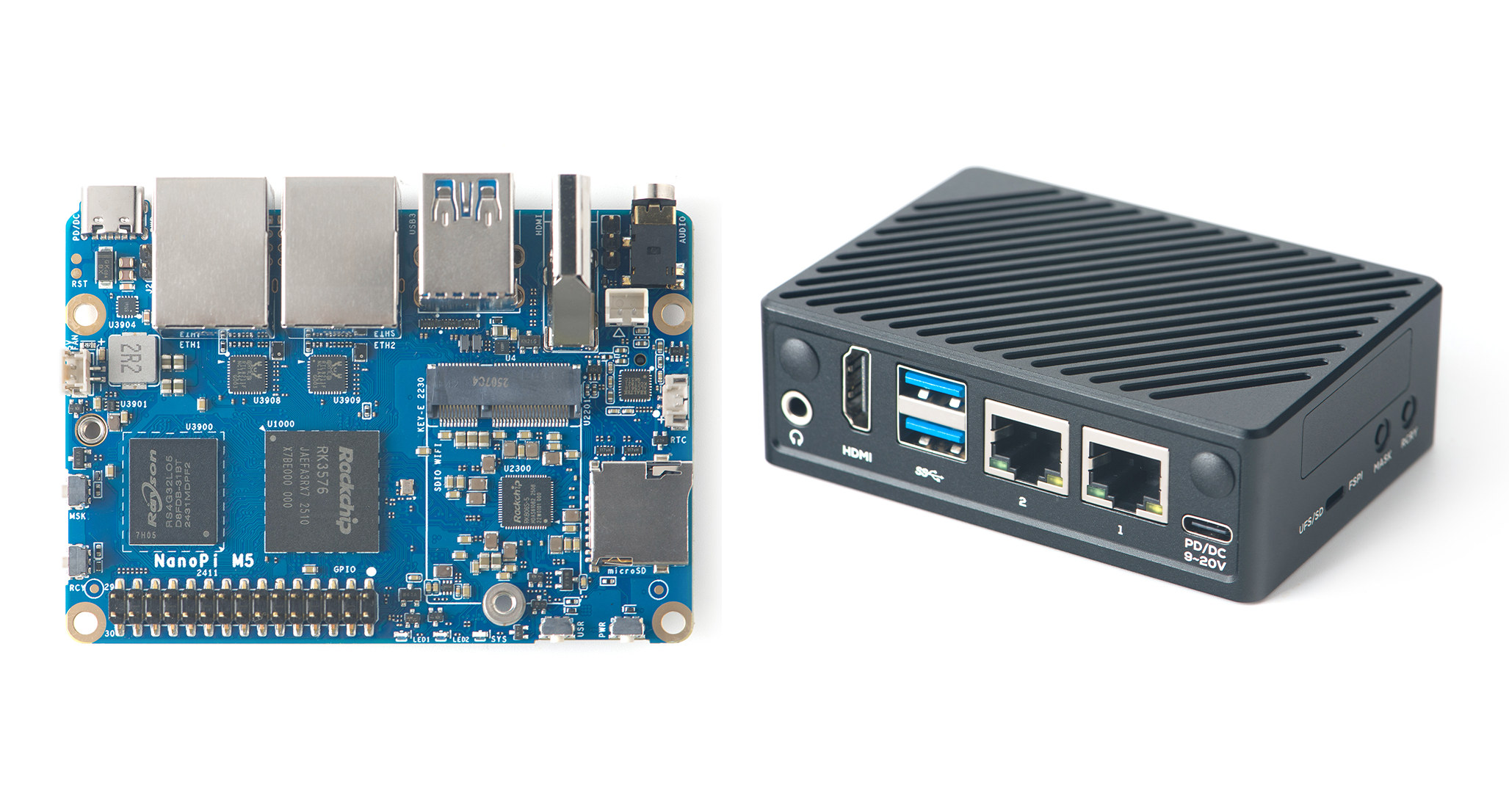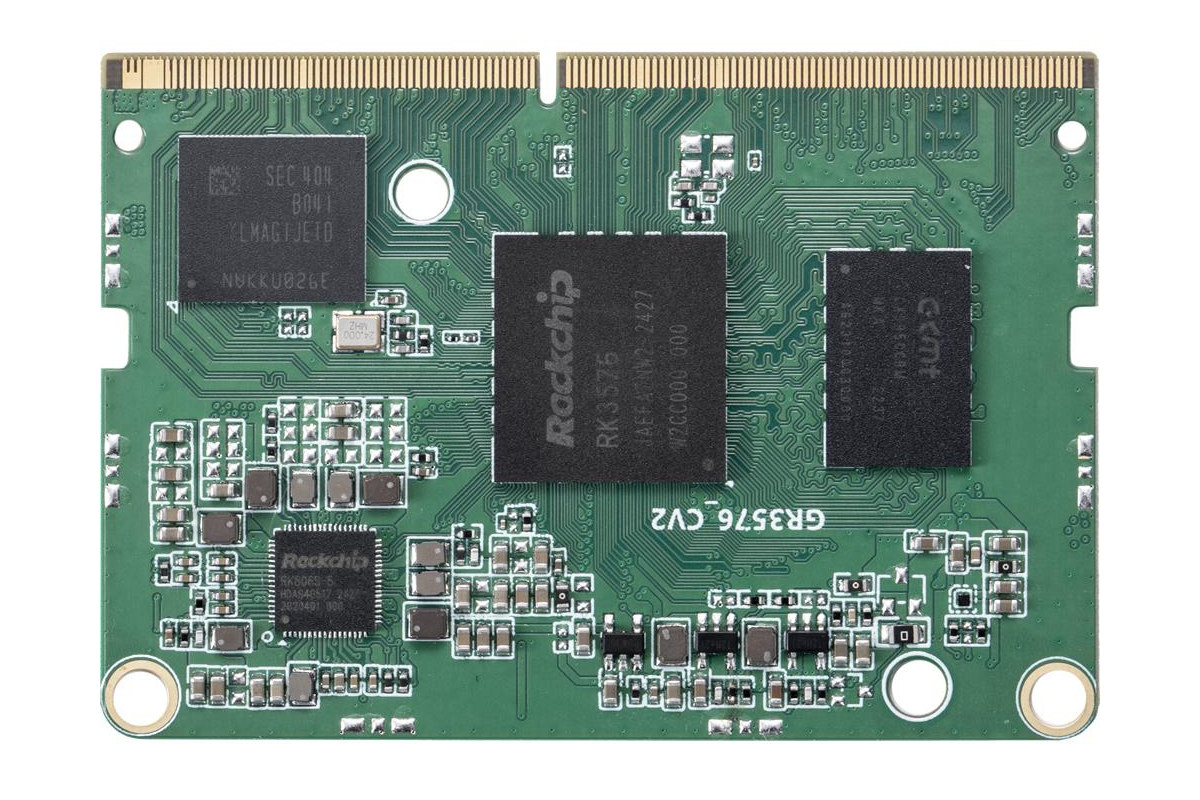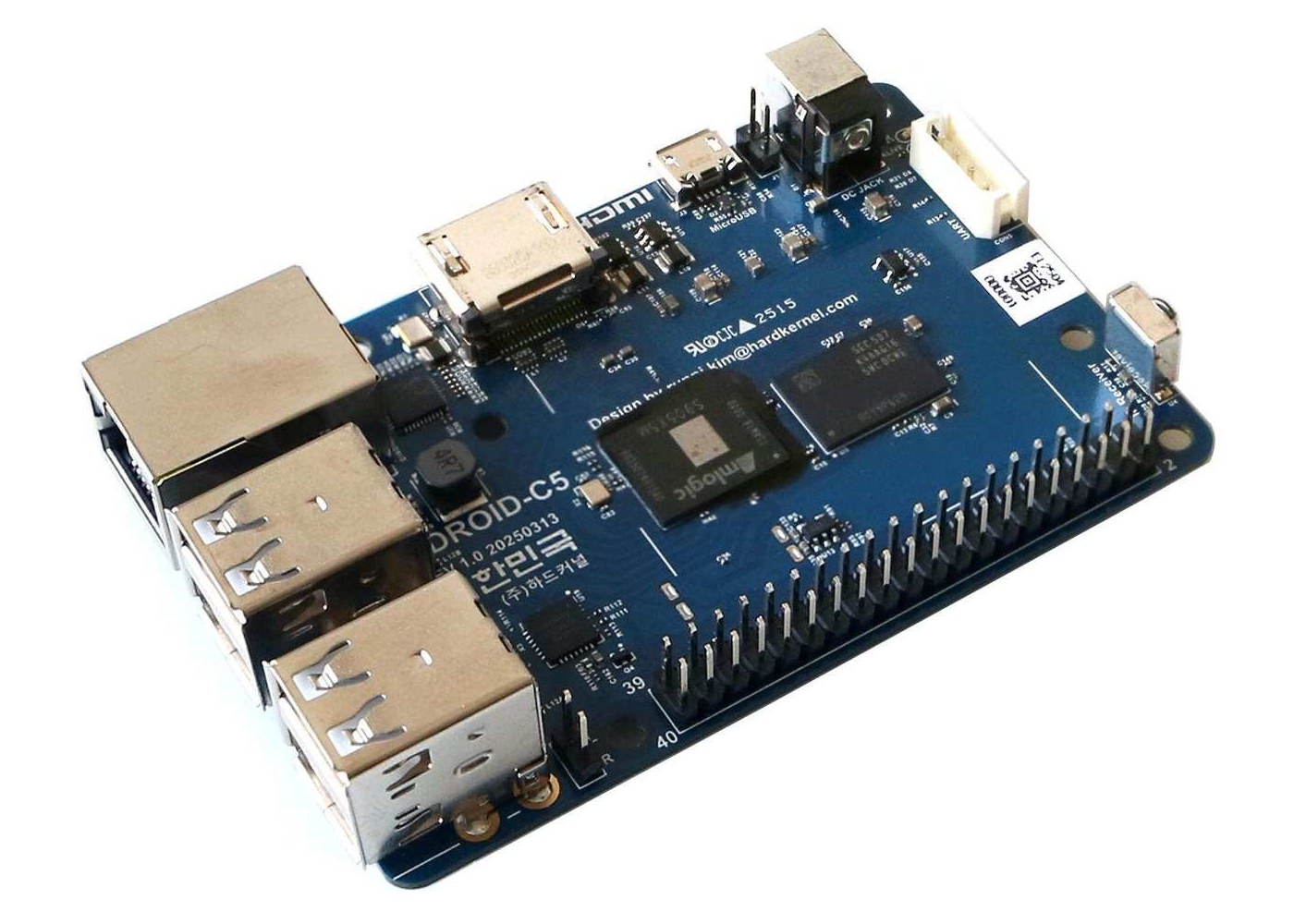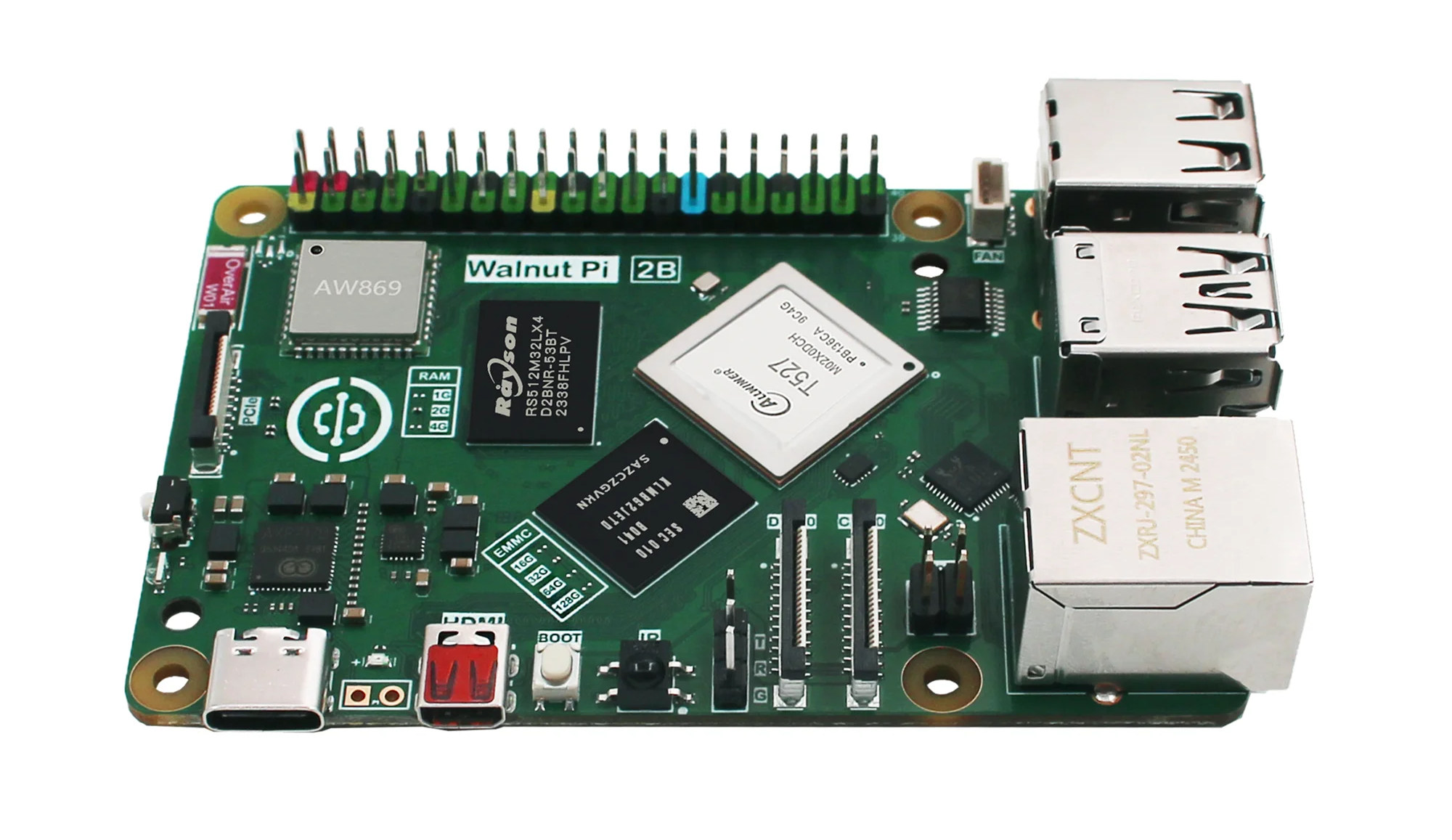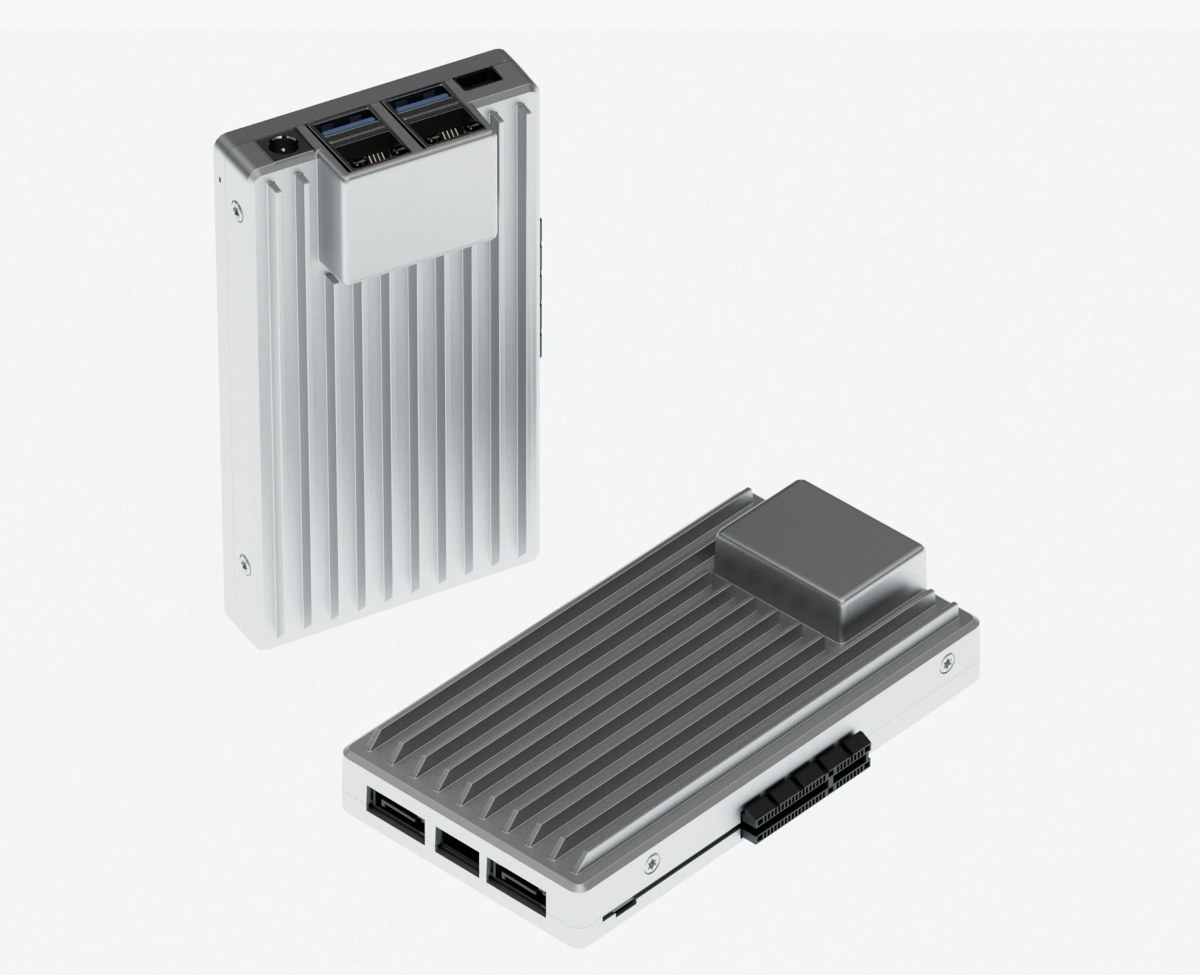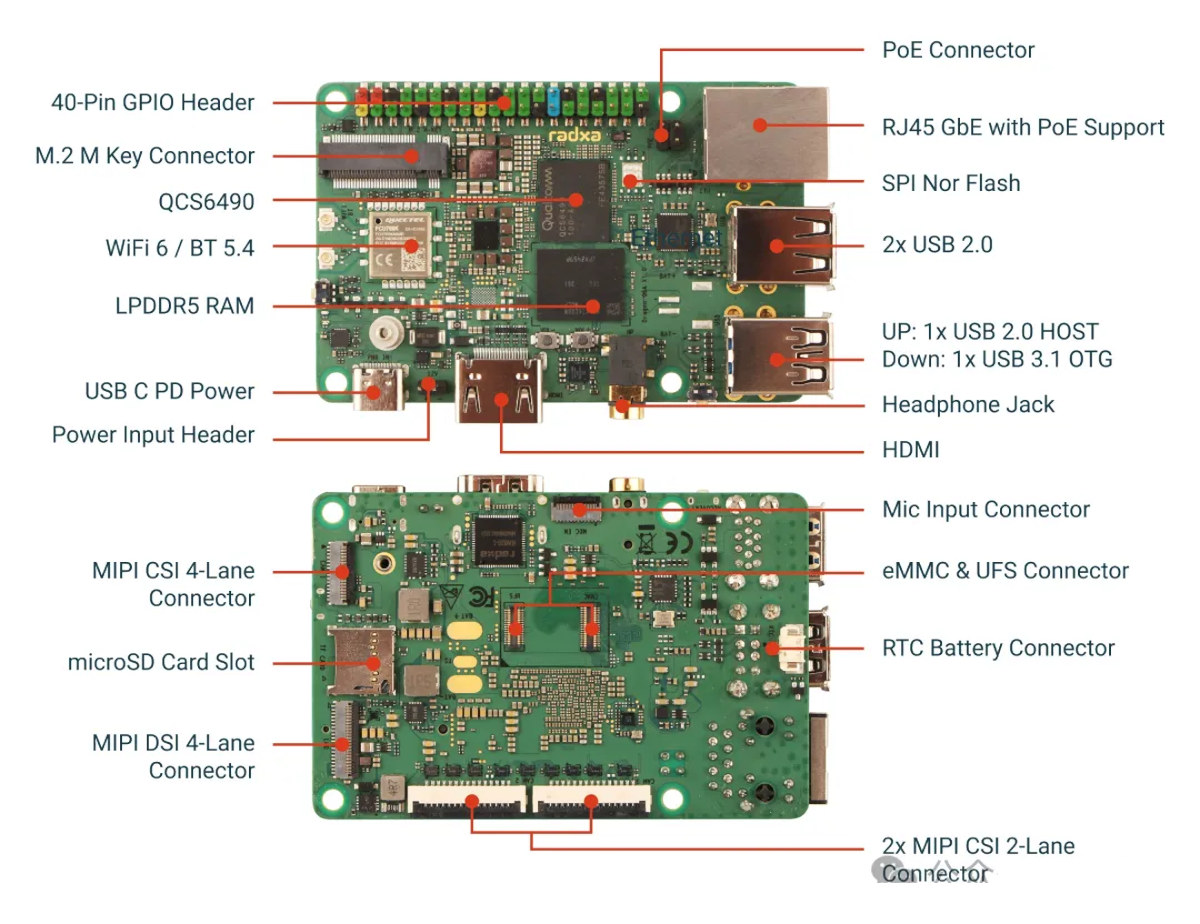The MOKO LW005-MP is a LoRaWAN smart plug for indoor power and energy consumption monitoring, featuring sockets compliant with EU, US, UK, and FRA standards and suitable for industrial equipment control, power monitoring, and energy management. The UL-certified smart plug operates with 100-230V AC mains, offers 0.5% power measurement accuracy, supports Bluetooth 4.0 for initial configuration and OTA updates, and can be controlled with LoRaWAN commands, an open-source mobile app, or a physical button. MOKO LW005-MP specifications: Wireless Bluetooth LE V4.0 for local configuration and OTA updates. LoRa Protocol – LoRaWAN V1.0.3 Supported frequency bands – CN470, EU868, AU915, US915, AS923, IN865, KR920, EU433, CN779, and RU864 Max Transmit Power – +21dBm Rx Sensitivity – -137dBm @ SF12 300bps Range – Up to 7 km in urban open space Power measurement accuracy – ±0.5% Misc Power and pairing button 2x RGB LED indicators display network status and power consumption levels. […]
Radxa ROCK 4D SBC – A Raspberry Pi lookalike powered by Rockchip RK3576 SoC with 6 TOPS AI accelerator
Radxa ROCK 4D is yet another Rockchip RK3576 SBC, but offered in a credit card form factor similar to the Raspberry Pi 3 model with the usual 40-pin GPIO header, Gigabit Ethernet ports, and four USB ports. We first noticed it when we covered the Radxa Dual 2.5G Router HAT, and I’ve just seen it added to the Linux 6.15 release, so I thought it might be a good time to cover it, especially since it’s already for sale on Allnet and AliExpress starting at $31 plus shipping. Radxa ROCK 4D specifications: SoC – Rockchip RK3576 or RK3576J (industrial-grade version) CPU – Octa-core CPU with 4x Cortex-A72 cores at 2.2 GHz, 4x Cortex-A53 cores at 2.0 GHz GPU – Arm Mali-G52 MC3 GPU with support for OpenGL ES 1.1, 2.0, and 3.2, OpenCL 2.0, and Vulkan 1.2 NPU – 6 TOPS (INT8) AI accelerator with support for INT4, INT8, INT16, […]
NanoPi M5 – A Rockchip RK3576 SBC with HDMI, dual GbE, M.2 NVMe and SDIO WiFi sockets, UFS 2.0 storage support
It feels like everybody is now launching hardware based on the Rockchip RK3576 SoC, the little brother of the RK3588 with Cortex-A72/A53 cores instead of Cortex-A76/A55 cores, 4K video output, and a mid-range Mali-G52 GPU, while keeping most of the same interfaces. FriendlyELEC has now joined the fray with the NanoPi M5 SBC equipped with up to 4GB LPDDR4x or 16GB LPDDR5, sockets for a UFS module and an M.2 NVMe SSD, HDMI 2.0 and MIPI DSI display interfaces, two MIPI CSI camera connectors, two gigabit Ethernet ports, a 3.5mm audio jack, two USB 3.0 ports, a 30-pin GPIO header, and more. NanoPi M5 specifications: SoC – Rockchip RK3576 CPU – Octa-core CPU with 4x Cortex-A72 cores at 2.2 GHz, 4x Cortex-A53 cores at 2.0 GHz GPU – Arm Mali-G52 MC3 GPU with support for OpenGL ES 1.1, 2.0, and 3.2, OpenCL 2.0, and Vulkan 1.2 NPU – 6 TOPS […]
Graperain GR3576_CV2 – A Rockchip RK3576 260-pin SO-DIMM SoM with up to 16GB RAM
Graperain GR3576_CV2 is a 260-pin SO-DIMM system-on-module (SoM) powered by a Rockchip RK3576 octa-core Cortex-A72/A53 SoC with a 6 TOPS NPU, and equipped with up to 16GB RAM and 256GB eMMC flash. The module supports up to six different display interfaces from HDMI to EBC for e-Paper displays, three camera inputs, a range of audio inputs and outputs, as well as USB 3.2, PCIe 2.1, and SATA interfaces, and plenty of other I/Os. Graperain GR3576_CV2 specifications: SoC – Rockchip RK3576 CPU – Octa-core CPU with 4x Cortex-A72 cores at 2.2GHz, 4x Cortex-A53 cores at 1.8GHz GPU – Arm Mali-G52 MC3 GPU with support for OpenGL ES 1.1, 2.0, and 3.2, OpenCL up to 2.0, and Vulkan 1.1 NPU – 6 TOPS (INT8) AI accelerator with support for INT4/INT8/INT16/BF16/TF32 mixed operations. VPU Video Decoder H.265, VP9, AV1, and AVS2 up to 8Kp30 or 4Kp120 H.264/AVC and MJPEG up to 4Kp60 Video […]
$39 ODROID-C5 is a power-efficient Amlogic S905X5M SBC with 4GB RAM, no heatsink needed
Hardkernel ODROID-C5 is a lower-cost upgrade to the ODROID-C4 SBC with a faster and more efficient Amlogic S905X5M quad-core Cortex-A55 SoC clocked at 2.5 GHz, 4GB DDR4 RAM, and almost the same features as the previous generation Amlogic S905X3 single board computer. That means a microSD card slot and an eMMC flash module socket for storage, HDMI 2.0 video output up to 4Kp60, a Gigabit Ethernet RJ45 port, four USB ports, and the usual 40-pin Raspberry Pi GPIO header. ODROID-C5 specifications: SoC – Amlogic S905X5M CPU – Quad-core Cortex-A55 processor @ 2.5 GHz GPU – Arm G310-V2 GPU @ 850 MHz supporting OpenGL ES 3.2, Vulkan 1.0 and OpenCL 2.0 VPU Video Decoding – 4Kp75 10-bit: AV1, H.265, VP9, AVS2; 4Kp30: H.264 Video Encoding – 1080p30 H.264 System Memory – 4GB DDR4 @ 3200MT/s Storage eMMC module connector with HS400 speed (16, 32, 64GB, 128GB, and 256GB modules available) MicroSD […]
Walnut Pi 2B is an Allwinner T527 octa-core SBC with Raspberry Pi 5 form factor and interfaces
Walnut Pi 2B is a single board computer (SBC) powered by an Allwinner T527 octa-core Cortex-A55 SoC with a built-in 2 TOPS AI accelerator that closely follows the Raspberry Pi 5 design for compatibility with most HAT+ expansion boards and accessories. The Walnut Pi 2B SBC ships with 1GB to 4GB LPDDR4 RAM, an optional 32GB eMMC flash, and features a microSD card slot, gigabit Ethernet, four USB ports, a WiFI and Bluetooth module, MIPI DSI/CSI connectors, and the same PCIe FFC connector as found on the Raspberry Pi 5, and a 40-pin GPIO. One of the most obvious differences is that it only comes with one micro HDMI port instead of two on the Pi 5. Let’s check out the specifications to find other changes. Walnut Pi 2B specifications: SoC – Allwinner T527 CPU Octa-core Arm Cortex-A55 processor with four cores @ 1.80 GHz and four cores @ 1.42GHz […]
Zimaboard 2 – An Intel N150 micro server and mini PC with dual SATA, dual 2.5GbE, PCIe slot, miniDP (Crowdfunding)
ZimaBoard 2 is a compact Intel Processor N150 “Twin Lake” mini PC and micro server with two 2.5Gbps Ethernet ports, two SATA ports, two USB 3.1 ports, and a 4K-capable miniDP video output. It built upon the company’s ZimaBoard introduced in 2021 with an Apollo Lake processor, but offers a much faster Intel N150 CPU, LPDDR5x memory, 2.5GbE networking instead of gigabit Ethernet, and a PCIe Gen 3.0 x4 slot as opposed to a PCIe Gen 2.0 x4 slot. Two variants are offered: one with 8GB RAM and 32GB eMMC flash and the other in a 16GB/64GB configuration. Zimaboard 2 specifications: SoC – Intel Processor N150 quad-core “Twin Lake” processor @ up to 3.6 GHz (Turbo) with 6MB cache, 24EU Intel UHD graphics @ 1000 MHz; PBP: 6W (but set to 10W here) System Memory and Storage ZimaBoard 2 832 – 8GB LPDDR5X 4800MHz; 32GB eMMC flash ZimaBoard 2 1664 […]
Radxa Dragon Q6A – A Qualcomm QCS6490 Edge AI SBC with GbE, WiFi 6, three camera connectors
Radxa Dragon Q6A is an upcoming credit card-sized SBC powered by a Qualcomm QCS6490 octa-core SoC with a 12 TOPS AI accelerator, up to 16GB LPDDR5 memory, and the usual ports found on Raspberry Pi-like single board computers such as gigabit Ethernet, four USB ports, HDMI video output, and a 40-pin GPIO header. The board will also feature an M.2 Key-M socket for SSD storage, a WiFi 6 and Bluetooth 5.4 wireless module, a MIPI DSI display interface, three MIPI CSI connectors, a connector for an eMMC or UFS flash module, a microphone input connector, and an RTC battery connector. Radxa Dragon Q6A specifications: SoC – Qualcomm QCS6490 CPU – Octa-core Kryo 670 with 1x Gold Plus core (Cortex-A78) @ 2.7 GHz, 3x Gold cores (Cortex-A78) @ 2.4 GHz, 4x Silver cores (Cortex-A55) @ up to 1.9 GHz GPU – Adreno 643L GPU @ 812 MHz with support for Open GL […]


